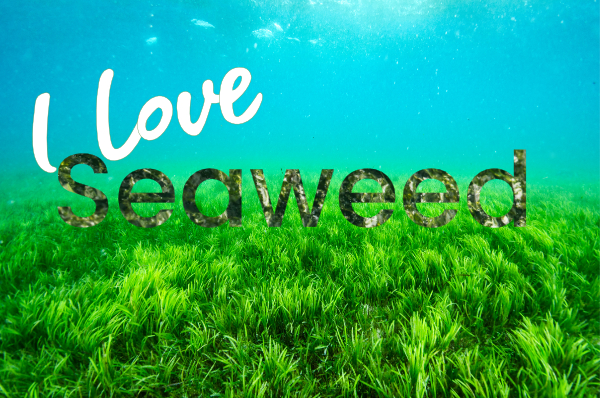
Here’s why seaweed is good for you…
Reasons to be High on (Sea) Weed
Most of the food crops grown in the U.S. come from monoculture farming practices. What this means is that huge plots of land grow only one crop like soy, corn or cotton. This type of modern, industrial farming poses several problems. First of all, over 90% of the most common food crops (again: corn, soy, cotton; for cottonseed oil) are heavily sprayed with synthetic herbicides like glyphosate (RoundUp).
We then eat the crops and are exposed to glyphosate, which has been linked to cancer by the International Agency for Research on Cancer. Second, monoculture farming doesn’t allow the soil to recover (heal) naturally. Growing the same crop over and over again also requires more synthetic chemicals to fertilize the soil. The problem with synthetic fertilizer is that it only contains a few minerals that are necessary for plants to turn green and sprout. But food grown on monoculture farms with synthetic fertilizer, and weed killers like RoundUp, are seriously lacking in trace minerals.
And that’s a huge consequence for human health. In fact, most chronic diseases such as heart disease and type 2 diabetes are associated with diets low in minerals and trace minerals.
Eating a diet that consists mostly of organic and non-GMO foods is one way to ensure that you’re getting more minerals in your diet. Another way to get more minerals, which function as catalysts for enzymes, is by eating seaweed.

My Favorite Sources Of Seaweed
When I feel like being lazy and watching TV, just like most people, out of habit, I’m tempted to reach for a snack. And when that craving hits, I get some roasted teriyaki seaweed from the pantry. These dried and crunchy treats look like a square, oversized communion wafer.
If you’re managing your weight, a box of roasted seaweed snack from Trader Joe’s is a smart snack because a whole package contains just 60 calories. Plus, you’re also getting almost 20% of your daily value of vitamins A and C. But nutrition labels don’t always tell the whole story. The content of trace minerals such as boron, which is important for bone health and copper, which forms red blood cells, is missing.

Go Fucoid Yourself!
Seaweed also contains compounds called “fucoidans.” They’re important for cellular communication, tissue regeneration and immune function. The first fucoidan was discovered over 100 years ago, and since then, they have been found to help prevent all kinds of health problems.
So how else do I get seaweed in my diet? Whenever I go for sushi, I get a couple appetizers: edamame (soybeans) and seaweed salad. Seaweed salad isn’t crunchy like roasted seaweed snacks. I actually don’t love the texture of it; it takes some getting used to. But I like it enough to order it, and I know that I’m doing my body good by getting trace minerals.
Sometimes I forget I have it in my pantry, but another source of seaweed I have is kelp flakes. Rich in iodine, which is vital for thyroid function, kelp flakes can be sprinkled on rice, salads, soups, pasta, and just about any entree. (If you have a thyroid disorder, check with your doctor if kelp flakes are safe for you to consume.)
Here’s one more way I occasionally get seaweed in my diet: seaweed smoothies! Doesn’t sound very appetizing does it? Actually, it’s not what you think. You don’t stuff a handful of seaweed from the ocean into your Vitamix and blend it on high. Instead, you can buy spirulina or chlorella powder. These two algaes (seaweed is algae) mix easily with your morning veggie drink. You can even add a teaspoon to your daily Organic Green Drink for extra minerals.

Does Seaweed Have Heavy Metals?
Some people are concerned that seaweed might be contaminated. If the world’s oceans are polluted, it would stand to reason that algae is teeming with heavy metals and other pollutants. For sure, I wouldn’t want to eat seaweed from the Great Pacific Garbage Patch, from what I’ve read, most seaweed is sourced from relatively clean deep waters. I also came across a study that made me feel better about eating seaweed. The study comes from South Korea, which as a nation eats way more seaweed than we do. Levels of heavy metals such as arsenic, lead, mercury and cadmium were tested in dried seaweed. The result of the study: “low probability of health risks from these metals via seaweed consumption.”
So next time I get a craving for a late-night snack, I’m getting high on seaweed.
